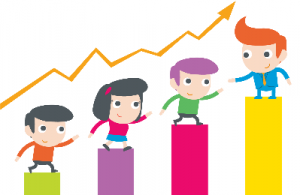Foundation Stage – Nursery and Reception classes
At Higher Failsworth Primary School we believe that our Foundation Stage is crucial to developing firm foundations to be built upon throughout our school journey and beyond.
It is our intent that the children who enter our Foundation Stage develop physically, verbally, emotionally, creatively, intellectually and spiritually whilst embedding a positive attitude to school and learning. We set high expectations throughout all areas of school life and beyond. We believe that all children deserve to be valued as an individual and we are passionate in supporting all children to achieve their full, unique potential.
Our Nursery and Reception classes follow the EYFS curriculum. The Foundation Stage classes are set up in a similar way to give the children lots of familiar experiences. It is designed to build on children’s skills and achievements. The outdoor area for learning is given equal importance in the daily learning experiences. The children are able to choose indoor or outdoor activities.
Development Matters in the Early Years Foundation Stage (EYFS)
We implement the areas of learning within the EYFS curriculum by providing a safe, stimulating environment that allows children to discover, be challenged, consolidate and achieve their very best whilst developing their resilience and independence.
There is a combination of adult-led, teacher taught whole class, group and individual support. Throughout all of these areas of learning and at the heart of the EYFS Curriculum are the ‘Characteristics of Effective Learning’.
We strive to develop these key characteristics of “Playing and Learning”, “Active Learning” and “Thinking Critically” in order to give the children the skills that they will continue to draw upon throughout their development. We get to know our families and children well and use their interests and knowledge to support and inspire our children’s knowledge and understanding of themselves, our local community and beyond. Our learning environments, both inside and outside are adapted to meet the different and developing needs of our children. We are passionate advocates for ensuring all of our children are able to share how they feel and work with them to support any worries or concerns they may have as we fully believe…Happy Children Learn.
The British Association for Early Childhood Education have published guidance about development in the Early Years. You can read more about it here.
Impact
Within our EYFS Curriculum, children are assessed through accurate observations informing future planning and children’s individual next steps in their learning. This enable us to ensure learning is embedded and consistent and that all children continue to make the best possible progress within our EYFS setting.
The impact of our provision can be seen through the positive feedback received by our parents via Class Dojo and at parents’ evenings and at school events.
It is a privilege to be part of such an important stage in our children’s development and our dedicated staff work tirelessly to deliver the best possible outcomes for our children.
The Early Years Curriculum
The Early Years Curriculum for Nursery and Reception age children enables practitioners to give children the best possible start to learning and school life. It focuses on encouraging children to learn and develop by playing and exploring, through active learning and creative thinking.
The areas of Learning and Development are made up of
Prime Areas
- Personal, Social & Emotional Development
- Physical Development
- Communication & Language Development
Specific Areas
- Literacy
- Mathematics
- Understanding the World
- Expressive Arts and Design
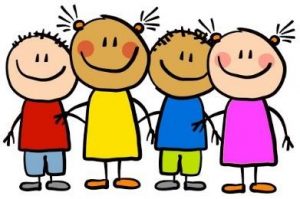
Personal, Social and Emotional Development: Making Relationships, Self-confidence and Self-awareness
This is a key element of learning in the EYFS and relates to enabling children to gain independence by selecting their own resources and activities, turn taking and sharing in different situations.
Children play co-operatively, taking account of each other’s ideas, needs and feelings.
Early Learning Goals
- Self-confidence and self-awareness:children are confident to try new activities, and say why they like some activities more than others. They are confident to speak in a familiar group, will talk about their ideas, and will choose the resources they need for their chosen activities. They say when they do or don’t need help.
- Managing feelings and behaviour: children talk about how they and others show feelings, talk about their own and others’ behaviour, and its consequences, and know that some behaviour is unacceptable. They work as part of a group or class, and understand and follow the rules. They adjust their behaviour to different situations, and take changes of routine in their stride.
- Making relationships:children play co-operatively, taking turns with others. They take account of one another’s ideas about how to organise their activity. They show sensitivity to others’ needs and feelings, and form positive relationships with adults and other children.
Physical Development: Moving and Handling and Health and Self-care
Using the outdoor environment to develop gross motor skills, running, jumping, skipping, climbing, kicking and throwing.
Using small and large equipment, cutting, drawing, threading etc. take place indoors and outdoors. These develop motor skills leading to formal writing.
Children understand the importance of a healthy lifestyle that relates to regular physical exercise, a good diet as well as self-help skills e.g. dressing/ undressing, using the toilet alone and lunchtime routines for reception children.
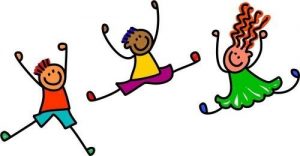
Early Learning Goals
- Moving and handling:children show good control and co-ordination in large and small movements. They move confidently in a range of ways, safely negotiating space. They handle equipment and tools effectively, including pencils for writing.
- Health and self-care:children know the importance for good health of physical exercise, and a healthy diet, and talk about ways to keep healthy and safe. They manage their own basic hygiene and personal needs successfully, including dressing and going to the toilet independently.
Communication and Language Development: Listening and Attention, Understanding and Speaking
Children listen attentively in a range of situations such as individually, large and small groups and amongst peers and adults. Also children are encouraged to develop conversational skills such as commenting and asking and answering questions.
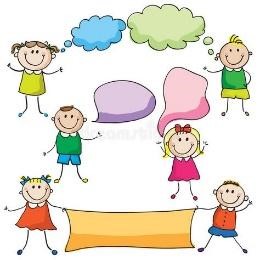
Early Learning Goals
- Listening and attention: children listen attentively in a range of situations. They listen to stories, accurately anticipating key events and respond to what they hear with relevant comments, questions or actions. They give their attention to what others say and respond appropriately, while engaged in another activity.
- Understanding: children follow instructions involving several ideas or actions. They answer ‘how’ and ‘why’ questions about their experiences and in response to stories or events.
- Speaking: children express themselves effectively, showing awareness of listeners’ needs. They use past, present and future forms accurately when talking about events that have happened or are to happen in the future. They develop their own narratives and explanations by connecting ideas or events.
Literacy: Reading and Writing
This relates to sharing stories, poems rhymes and factual books, reading in small and large groups. Children are taught daily phonics to develop both reading and writing skills. Children begin to read simple sentences and through developing similar writing skills by mark making using phonics skills and expressing their ideas.
Opportunities for mark-making is built into play based writing activities i.e. shopping lists, telephone pads, clipboards, chalk, and paint.
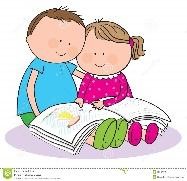
Early Learning Goals
- Reading:children read and understand simple sentences. They use phonic knowledge to decode regular words and read them aloud accurately. They also read some common irregular words. They demonstrate understanding when talking with others about what they have read.
- Writing:children use their phonic knowledge to write words in ways which match their spoken sounds. They also write some irregular common words. They write simple sentences which can be read by themselves and others. Some words are spelt correctly and others are phonetically plausible.
Mathematics – Numbers, Shape, Space and Measure
Sorting and describing objects, making patterns, joining in with number rhymes, weighing and measuring, using money, practical activities in sand, water and role play e.g. shop areas.
Exploring shapes in a variety of situations.
Children count reliably with numbers from 1-20 and in practical situations solve addition and subtraction problems.
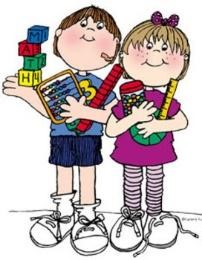
Early Learning Goals
- Numbers:children count reliably with numbers from 1 to 20, place them in order and say which number is one more or one less than a given number. Using quantities and objects, they add and subtract two single-digit numbers and count on or back to find the answer. They solve problems, including doubling, halving and sharing.
- Shape, space and measures: children use everyday language to talk about size, weight, capacity, position, distance, time and money to compare quantities and objects and to solve problems. They recognise, create and describe patterns. They explore characteristics of everyday objects and shapes and use mathematical language to describe them.
Understanding the World: People and Communities, The World and Technology.
Learning about different cultures and beliefs, celebrating a range of festivals during the year.
Learning about living things through first hand observation, exploring and appreciating the environment.
Interactive activities/games on the iPads, developing control.
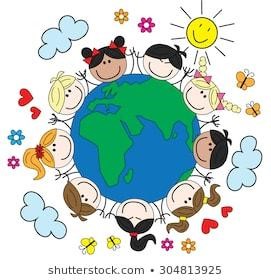
Early Learning Goals
- People and communities:children talk about past and present events in their own lives and in the lives of family members. They know that other children don’t always enjoy the same things, and are sensitive to this. They know about similarities and differences between themselves and others, and among families, communities and traditions.
- The world:children know about similarities and differences in relation to places, objects, materials and living things. They talk about the features of their own immediate environment and how environments might vary from one another. They make observations of animals and plants and explain why some things occur, and talk about changes.
- Technology: children recognise that a range of technology is used in places such as homes and schools. They select and use technology for particular purposes.
Expressive Arts and Design: Exploring and using Media & Materials and Being Imaginative
Children experience singing, chanting, experimenting with a variety of percussion instruments. Daily opportunities to paint, collage & make models.
Finding out how to mix paint and join things together.
Children use imaginative play in role-play areas, dens, café or shop. A wide variety of dance & drama and musical activities are accessed.
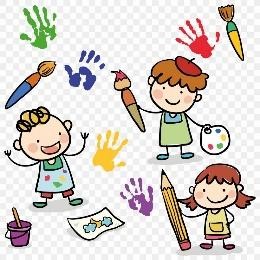
Early Learning Goals
- Exploring and using media and materials:children sing songs, make music and dance, and experiment with ways of changing them. They safely use and explore a variety of materials, tools and techniques, experimenting with colour, design, texture, form and function.
- Being imaginative:children use what they have learnt about media and materials in original ways, thinking about uses and purposes. They represent their own ideas, thoughts and feelings through design and technology, art, music, dance, role-play and stories.
Assessment
Assessment plays an important part in helping parents, carers and teachers to recognise children’s progress, understand their needs, and to plan activities and support. Ongoing assessment (also known as formative assessment) is an integral part of the learning and development process. It involves teachers observing children to understand their level of achievement, interests and learning styles, and to then shape learning experiences for each child reflecting those observations. In their interactions with children, teachers should respond to their own day-to-day observations about children’s progress and observations that parents and carers share.
Parents and/or carers will be kept up-to-date with their child’s progress and development. Teachers will address any learning and development needs in partnership with parents and/or carers, and any relevant professionals.
In the final term of the year in which the child reaches age five, (and no later than 30th June), the EYFS Profile will be completed for each child. The Profile provides parents and carers, practitioners and teachers with a well-rounded picture of a child’s knowledge, understanding and abilities, their progress against expected levels, and their readiness for Year 1.
Each child’s level of development must be assessed against the early learning goals. Teachers will indicate whether children are meeting expected levels of development, or if they are exceeding expected levels, or not yet reaching expected levels (‘emerging’). This is the EYFS Profile.
The profile will be completed for all children, including those with special educational needs or disabilities. Reasonable adjustments to the assessment process for children with special educational needs and disabilities will be made as appropriate. School will consider whether they may need to seek specialist assistance to help with this. Children will have differing levels of skills and abilities across the Profile and it is important that there is a full assessment of all areas of their development, to inform plans for future activities and to identify any additional support needs.
